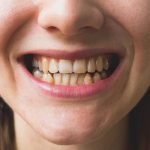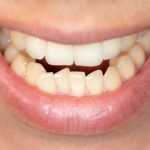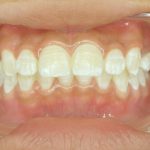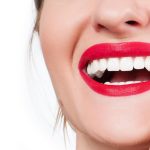Say Goodbye to Coffee Stains on Teeth: Tips on Preventing Discoloration
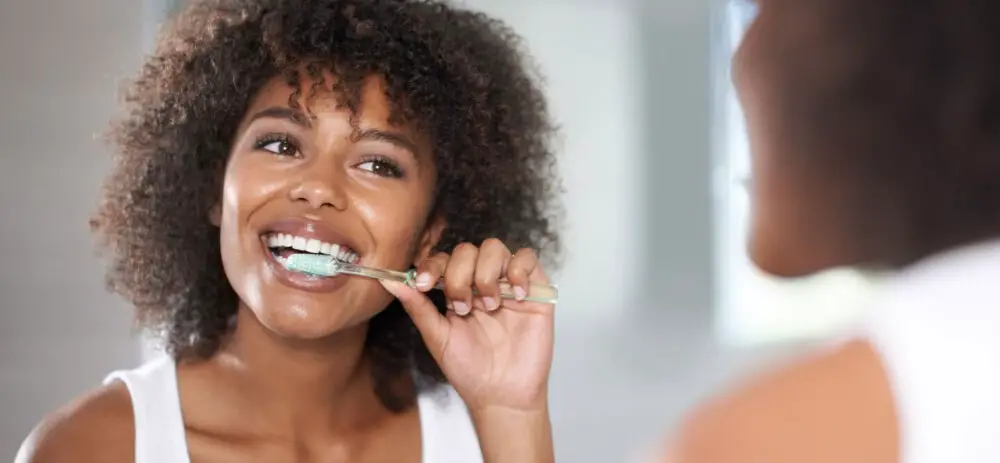
Coffee is a beloved beverage enjoyed by millions of people around the world. But with great love comes great responsibility, especially when it comes to dental health. One of the most common problems coffee drinkers face is the discoloration of their teeth. Coffee stains can be unsightly and difficult to remove, leaving many people feeling self-conscious about their smile. Fortunately, there are several easy and effective ways to prevent coffee stains and keep your pearly whites looking their best. The first step in preventing coffee stains is to understand how they happen. Coffee contains chromogens, which are compounds that give it its dark color. These chromogens can stick to the enamel of your teeth, causing discoloration over time. Additionally, coffee is acidic, which can erode your tooth enamel and make it easier for stains to set in. By taking steps to minimize the impact of these factors, you can keep your teeth looking bright and healthy while still enjoying your morning cup of joe.
Coffee stains on teeth are a common and unsightly problem that many coffee drinkers face. The natural pigments found in coffee, known as chromogens, have a strong affinity for tooth enamel, causing discoloration over time. Additionally, the acidity in coffee can erode the protective layer of enamel on teeth, making them more susceptible to staining. Even regular brushing may not be enough to remove these stubborn stains, and they can become more resistant to whitening treatments over time. Fortunately, there are several preventative measures coffee lovers can take to avoid or minimize the appearance of coffee stains on teeth, such as using a straw, rinsing with water after drinking, and maintaining good oral hygiene habits.
Maintaining good oral hygiene is crucial not only for having a bright and healthy smile, but also for overall health. Poor oral hygiene can lead to a range of issues such as bad breath, gum disease, tooth decay, and even heart disease. Brushing twice a day, flossing daily, and visiting the dentist regularly can prevent the buildup of plaque, tartar, and bacteria in the mouth. In addition, limiting sugary and acidic foods and drinks, and avoiding smoking can also help keep teeth clean and healthy. By taking care of our oral health, we not only prevent dental problems but also contribute to our overall well-being.
Understanding the Causes of Coffee Stains on Teeth
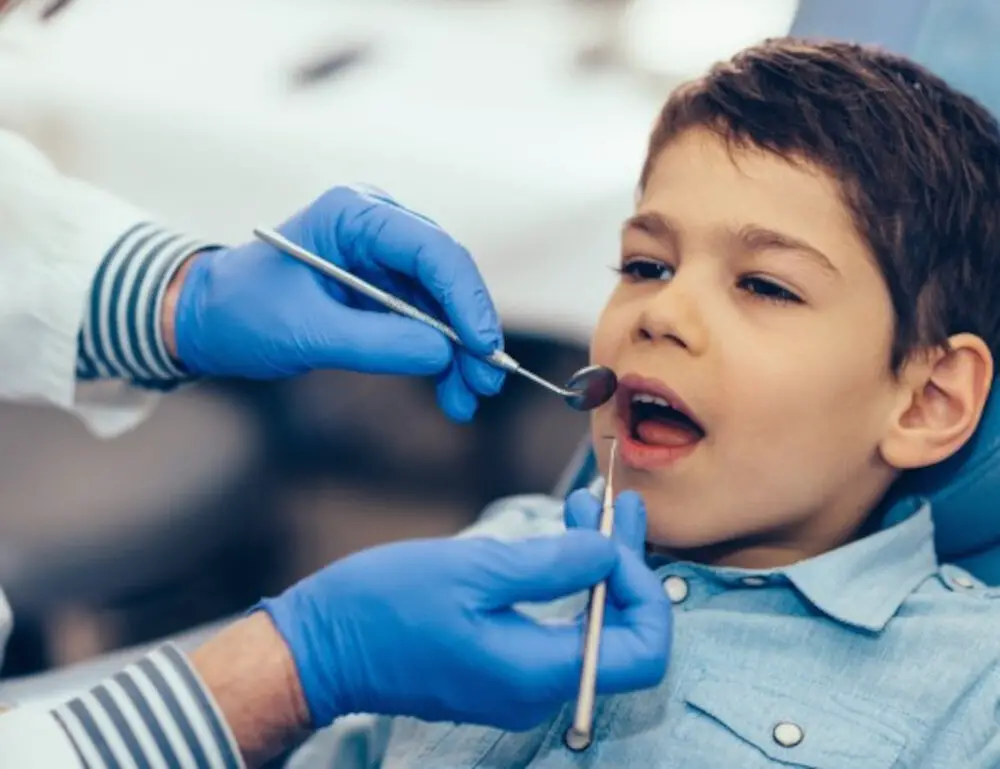
Coffee is one of the most popular beverages in the world, and it is consumed by millions of people every day. Unfortunately, one of the side effects of drinking coffee is that it can cause unsightly stains on your teeth. These stains are caused by the pigments in coffee, which can build up on the surface of your teeth over time. The longer you drink coffee, the more likely you are to develop stains on your teeth. However, there are several steps you can take to prevent coffee stains and keep your teeth looking bright and healthy. One of the main causes of coffee stains on teeth is the high level of acidity in coffee. When you drink coffee, the acidity of the beverage erodes the enamel on your teeth, making them more susceptible to staining. In addition, coffee contains tannins, which are compounds that can bind to the surface of your teeth and cause discoloration. To prevent coffee stains, it is important to limit your consumption of coffee and other acidic beverages. You can also brush your teeth immediately after drinking coffee, which can help to remove any pigments or tannins from your teeth before they have a chance to cause stains.
Coffee is a beloved beverage worldwide, but it can also cause unsightly teeth stains. The culprit behind coffee stains is a group of compounds called chromogens, which give coffee its dark color. These compounds are highly pigmented and can easily adhere to the porous surface of teeth enamel. Additionally, coffee is also highly acidic, and over time, this acidity can erode the enamel, making it even more vulnerable to staining. While coffee stains are not harmful to dental health, they can be a cosmetic concern, leading to yellow or brown discoloration of teeth. To prevent coffee stains, it is recommended to limit coffee consumption or rinse your mouth with water after drinking coffee. Regular dental check-ups and professional cleanings can also help to remove coffee stains and maintain healthy teeth.
Coffee, a popular beverage worldwide, has been associated with causing discoloration of teeth. The enamel, the outermost layer of the teeth, is the first to be affected by coffee. The dark pigments present in the coffee adhere to the enamel of the teeth, causing staining. The acidity of coffee also weakens the enamel, making it more susceptible to staining. Moreover, the high temperature of coffee can damage the enamel, leading to cracks and chips, which can further exacerbate discoloration. Therefore, it is essential to take preventive measures, such as brushing and flossing regularly, using whitening toothpaste, and reducing coffee intake to maintain the health and whiteness of the teeth.
Coffee is a popular beverage that contains tannins, which are polyphenols that can cause discoloration of the dentin of the teeth. The dentin is the layer of the tooth beneath the enamel that is naturally yellow in color. When tannins from coffee come into contact with the dentin, they can cause staining, making the teeth appear darker and less white. Additionally, coffee is an acidic beverage that can erode the enamel of the teeth, making the dentin more exposed and susceptible to staining. Therefore, it is essential to take measures to prevent coffee stains on teeth, such as drinking through a straw, rinsing the mouth with water after drinking coffee, and brushing teeth regularly.
Prevention is Better Than Cure
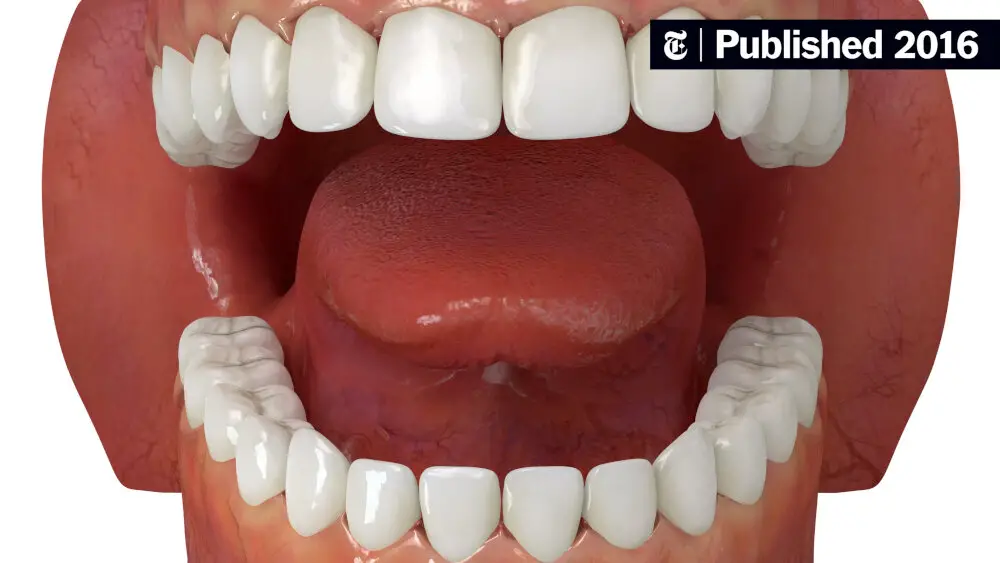
Prevention is better than cure when it comes to coffee stains on teeth. It is a well-known fact that coffee is a culprit in causing discoloration of teeth. The brown pigments in coffee easily stick to the enamel of teeth, leading to coffee stains. Therefore, it is important to take precautions to prevent coffee stains rather than trying to cure them later. One of the easiest ways to prevent coffee stains is by rinsing the mouth with water immediately after drinking coffee. This helps to wash away the pigments and reduce the risk of staining. Additionally, using a straw to drink coffee is also an effective way to prevent coffee stains as it minimizes the contact between the coffee and teeth. Another effective way to prevent coffee stains is by maintaining good oral hygiene. Brushing teeth twice a day and flossing once a day helps to remove any surface stains and prevent buildup of plaque, which can lead to discoloration. Using whitening toothpaste or mouthwash can also help to prevent coffee stains by removing any surface stains and brightening teeth. Finally, reducing the frequency of coffee consumption or switching to lighter-colored beverages can also help to prevent coffee stains. By taking these simple precautions, it is possible to enjoy coffee without worrying about its impact on teeth.
Coffee is a beloved morning beverage for many people, but it can have an unfortunate side effect of staining teeth over time. Fortunately, there are several steps you can take to prevent coffee stains on your teeth. Firstly, consider drinking your coffee through a straw, as this can help bypass your teeth altogether. Additionally, brushing your teeth immediately after drinking coffee can help prevent the stains from setting in. Another tip is to switch to lighter roast coffee, as darker roasts tend to have more staining potential. Finally, regular dental cleanings and using whitening toothpaste can also help keep your teeth looking bright and white despite your coffee habit. With these tips, you can continue to enjoy your morning cup of coffee without worrying about the effects on your teeth.
Drinking water after consuming coffee can be an effective way to prevent discoloration and stains on teeth. Coffee contains tannins that can cause the teeth’s enamel to become more porous, making them more susceptible to staining. Drinking water after drinking coffee can help to rinse away any residual coffee and tannins, reducing the likelihood of stains. Additionally, drinking water can help to keep the mouth hydrated, which can reduce the amount of saliva that is produced, further reducing the risk of staining. So, it is highly recommended to drink water after consuming coffee to maintain a healthy and bright smile.
Using a straw while drinking coffee is a simple yet effective way to prevent teeth discoloration. Coffee is notorious for staining teeth due to its high acidity and dark pigmentation. By using a straw, you can bypass the front teeth and direct the coffee towards the back of the mouth, reducing its contact with the teeth. This not only helps prevent discoloration but also protects the tooth enamel from erosion caused by the acidic nature of coffee. Additionally, using a straw can also help reduce the risk of coffee stains on your lips, tongue and the skin around your mouth. So, if you’re a coffee lover who wants to maintain a bright smile, using a straw is a small but worthwhile habit to adopt.
Brushing teeth regularly is an essential aspect of maintaining good oral hygiene. Not only does it help prevent cavities, but it also plays a crucial role in preventing discoloration of teeth caused by coffee stains. By brushing twice a day with fluoride toothpaste and using proper brushing techniques, you can remove surface stains and keep your teeth looking bright and healthy. It is also recommended to brush your teeth after consuming coffee or other staining beverages to prevent the buildup of stains. Additionally, incorporating flossing and mouthwash into your daily routine can further improve the overall health and appearance of your teeth. So, make sure to prioritize regular brushing and oral care to keep your pearly whites shining bright!
Flossing teeth regularly is an essential step towards maintaining good oral hygiene and preventing discoloration. While brushing may remove surface stains, flossing can reach between teeth and remove plaque buildup that can contribute to stains and discoloration. In addition to preventing discoloration, flossing can also help prevent gum disease, bad breath, and tooth decay. Using dental floss or interdental cleaners at least once a day can help keep your teeth and gums healthy and free from coffee stains and other discoloration caused by food and drink. So, make sure to add flossing to your daily dental routine and enjoy a brighter, healthier smile.
Using whitening toothpaste can be an effective way to prevent and remove coffee stains on teeth. These toothpastes contain ingredients such as baking soda, hydrogen peroxide, and other abrasives that help to gently remove surface stains and whiten teeth. However, it’s important to note that whitening toothpaste is not a substitute for regular brushing and flossing, and it may take several weeks or months of consistent use to see results. Additionally, it’s best to choose a toothpaste that has been approved by the American Dental Association to ensure that it is safe and effective for your teeth and gums. By incorporating whitening toothpaste into your oral care routine, you can help maintain a bright and healthy smile while still enjoying your morning cup of coffee.
Treatment of Coffee Stains on Teeth
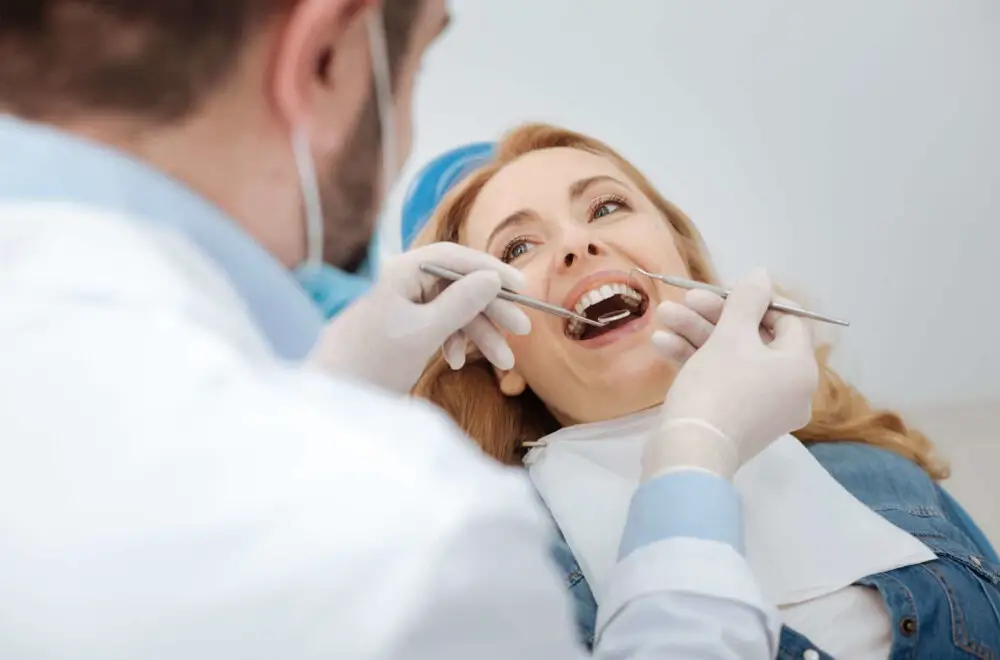
Coffee is one of the most popular beverages in the world, but it’s also notorious for causing unsightly stains on teeth. These stains can be difficult to remove and can leave your smile looking dull and discolored. Fortunately, there are several treatment options available to help combat coffee stains on teeth. One of the most effective treatments is professional teeth whitening, which can be done by a dentist or dental hygienist. This treatment involves using a special light or laser to activate a whitening gel that is applied to the teeth. The gel penetrates the enamel to remove deep stains, leaving teeth looking brighter and whiter. In-office whitening treatments typically take about an hour and can produce dramatic results. Another treatment option for coffee stains on teeth is at-home whitening kits. These kits typically contain a whitening gel that is applied to the teeth using a custom-fitted tray. The tray is worn for several hours a day, usually for a period of two to three weeks. At-home whitening kits can be effective, but they may not produce the same dramatic results as professional whitening treatments. It’s also important to note that overuse of at-home whitening kits can cause tooth sensitivity and damage to the enamel, so it’s important to follow the instructions carefully and only use the kits as directed. Ultimately, the best way to prevent coffee stains on teeth is to limit your intake of coffee and other dark-colored beverages, and to practice good oral hygiene habits like brushing and flossing regularly.
Professional teeth whitening treatments are a popular solution for those looking to brighten their smile. These treatments are typically done in a dentist’s office and use professional-grade whitening agents that are stronger than over-the-counter options. The procedure typically involves applying the whitening agent to the teeth and using a special light to activate the whitening process. The result is a brighter, more youthful-looking smile. However, it is important to note that professional teeth whitening treatments can be expensive and may not be covered by insurance. Additionally, maintaining good oral hygiene habits and avoiding foods and beverages that can cause discoloration can help prolong the effects of the treatment.
If you’re looking for home remedies for teeth whitening, there are several options to try. Baking soda is a popular choice, as it has natural whitening properties. Mix a small amount of baking soda with water to create a paste and brush your teeth with it once a week. Another effective home remedy is hydrogen peroxide, which can be used as a mouthwash or mixed with baking soda to create a paste. Be sure to use a low concentration of hydrogen peroxide to avoid damaging your teeth. Additionally, eating crunchy fruits and vegetables like apples and carrots can help remove surface stains from your teeth. Remember, while home remedies can be effective, it’s important to maintain good oral hygiene habits and to consult with your dentist before trying any new whitening treatments.
Over-the-counter teeth whitening products have become increasingly popular in recent years as more people seek to improve the appearance of their teeth. These products range from whitening toothpaste to strips and gels that are applied directly to the teeth. While they can be effective in removing surface stains caused by coffee and other sources of discoloration, it’s important to use them as directed and not rely on them as a substitute for good oral hygiene habits. Some products may also cause sensitivity or damage to the teeth and gums if used incorrectly, so it’s best to consult with a dentist before starting a whitening regimen. Ultimately, the best way to prevent coffee stains on teeth is to limit consumption and practice good dental care.
Maintaining Good Oral Hygiene
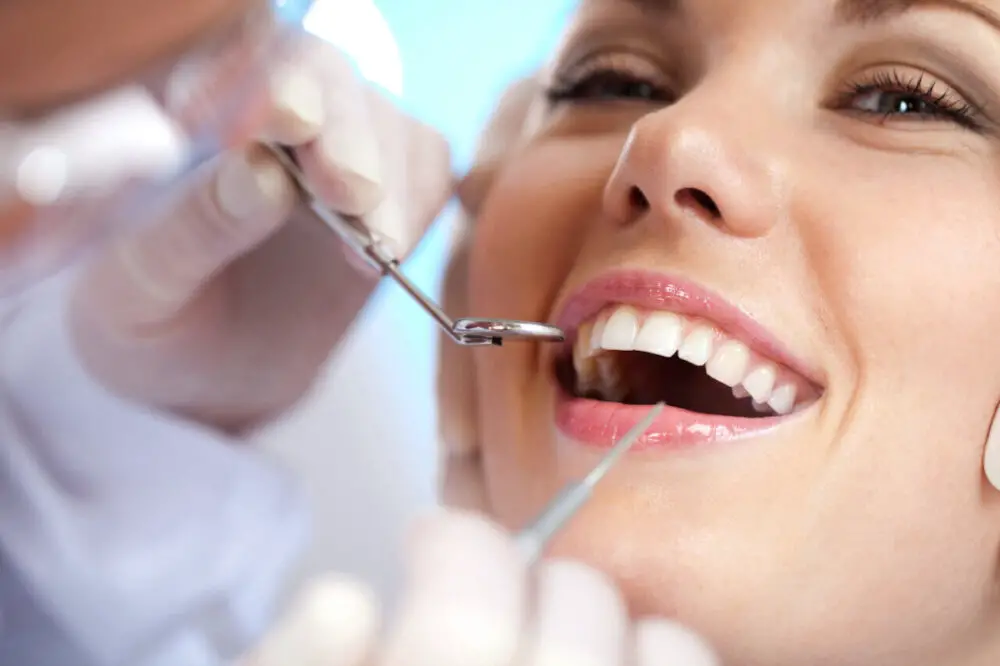
Maintaining good oral hygiene is crucial to prevent discoloration of teeth caused by coffee stains. Brushing your teeth twice a day with fluoride toothpaste for at least two minutes is essential to remove plaque and prevent staining. Flossing daily helps to remove food particles and plaque from between teeth, preventing bacteria growth that causes discoloration. Additionally, using an antibacterial mouthwash can help to kill bacteria that causes bad breath and staining. It is also important to avoid smoking cigarettes and using other tobacco products, as they cause severe staining and damage to teeth and gums. In addition to regular brushing and flossing, there are several other steps you can take to maintain good oral hygiene and prevent coffee stains on your teeth. Limiting your coffee intake, using a straw when drinking coffee, and rinsing your mouth with water after drinking coffee can all help to prevent staining. Eating a healthy diet rich in fruits and vegetables can also help to keep teeth healthy and prevent discoloration. Regular dental check-ups and cleanings are also essential to maintain good oral hygiene and prevent staining caused by coffee and other foods and drinks. By following these tips, you can say goodbye to coffee stains on your teeth and enjoy a healthy, bright smile.
Regular dental checkups are essential for maintaining good oral hygiene and preventing dental problems such as discoloration. During a dental checkup, a dentist can identify any early signs of discoloration or other dental issues and provide appropriate treatment. Moreover, regular dental checkups can help prevent the buildup of plaque and tartar, which can cause further discoloration and dental issues. A dentist can also provide advice on proper oral hygiene practices and recommend specialized treatments such as teeth whitening to help prevent and treat discoloration. Neglecting regular dental checkups can lead to more serious dental problems and significantly impact overall dental health. Therefore, it is important to prioritize regular dental checkups to maintain a healthy and radiant smile.
While maintaining a white smile can be a priority for many, it is crucial to remember the importance of healthy eating habits. Consuming a balanced diet rich in vitamins and minerals can not only improve overall oral health but also contribute to a brighter smile. For instance, foods like apples and carrots, which are crunchy and high in fiber, can help scrub away surface stains on teeth. Additionally, drinking plenty of water can help wash away food particles and prevent bacteria buildup, leading to fresher breath and healthier teeth and gums. Incorporating a variety of nutrient-dense foods into your diet can ultimately lead to a happier, healthier you, both inside and out.
Limiting coffee intake is extremely important for maintaining healthy and white teeth. Coffee contains tannins which are responsible for staining teeth and making them appear yellow or brown. These stains can be difficult to remove and can negatively impact one’s appearance and confidence. Additionally, excessive coffee consumption can lead to dehydration, which can cause dry mouth and reduced saliva production. This can further exacerbate staining and increase the risk of tooth decay and gum disease. Therefore, it is recommended to limit coffee intake and practice good oral hygiene habits such as brushing and flossing regularly, and visiting the dentist for professional cleanings to prevent discoloration and maintain a bright, healthy smile.
The article \Say Goodbye to Coffee Stains on Teeth: Tips on Preventing Discoloration\ provides practical tips to prevent coffee stains on teeth. First, it suggests drinking coffee through a straw to minimize contact with teeth. Secondly, brushing teeth immediately after consuming coffee can prevent staining. Additionally, rinsing your mouth with water or chewing sugar-free gum after drinking coffee can also help reduce discoloration. It is also recommended to limit coffee consumption and have regular dental checkups. Finally, using whitening toothpaste or undergoing professional teeth whitening can help remove coffee stains on teeth. By following these tips, coffee lovers can continue enjoying their daily cup of coffee without worrying about discoloration.
Maintaining good oral hygiene is crucial not only for the preservation of our teeth, but for our overall health as well. Poor oral hygiene can cause a plethora of health issues, such as gum disease, tooth decay, and bad breath, which can lead to more serious conditions such as heart disease, diabetes, and even cancer. By practicing good oral hygiene habits, such as brushing and flossing regularly, using mouthwash, and visiting the dentist for regular check-ups, we can prevent these issues and maintain a healthy smile. In addition, avoiding staining substances like coffee and tobacco can also help preserve the aesthetic appearance of our teeth, giving us more confidence in our smile and overall appearance.
If you’re an avid coffee drinker, you may have noticed that your teeth have started to become discolored. Fortunately, there are a few things you can do to prevent coffee stains on your teeth. First, consider drinking your coffee through a straw to minimize contact with your teeth. Additionally, rinse your mouth with water after drinking coffee to help wash away any residue. You can also try adding milk to your coffee, which has been shown to reduce the likelihood of staining. Finally, be sure to maintain good oral hygiene habits, such as brushing and flossing regularly, to keep your teeth healthy and clean. By following these tips, you can continue to enjoy your morning cup of coffee without worrying about stains on your teeth.
Conclusion
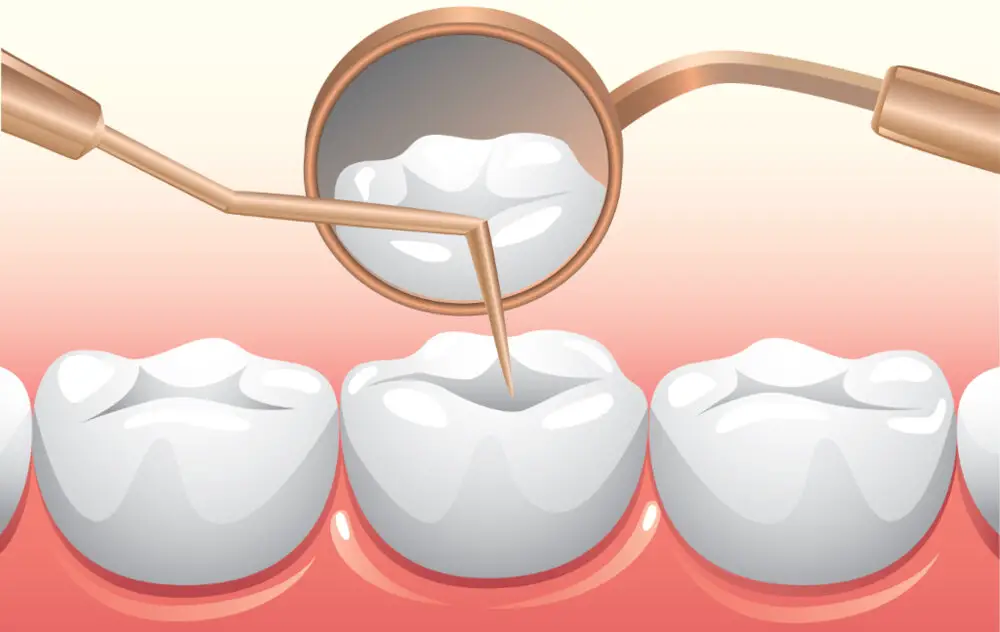
In conclusion, coffee stains on teeth can be a frustrating and unsightly problem for many coffee lovers. However, there are several tips and tricks that can be employed to prevent discoloration and maintain a bright smile. From drinking coffee through a straw to regular brushing and flossing, taking care of your teeth is essential in preventing coffee stains. Whitening treatments can also be considered for those already experiencing discoloration. By following these tips and taking care of your oral health, coffee lovers can enjoy their favorite beverage without fear of staining their teeth. So, say goodbye to coffee stains and hello to a bright, confident smile!


